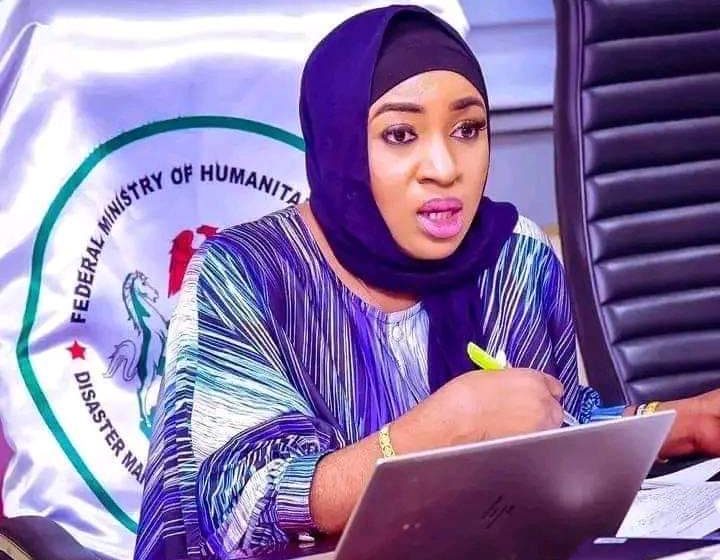By Ngozi Ibe, Abuja
President Bola Tinubu’s popularity and public acceptance has soared in the last few days. Unlike western Countries where polls and ratings are articles of faith and form part of the barometer for measuring public policies and leadership performance, here we are left to guess in the direction of any wind blowing in the media, traditional or digital, offline and online. And the media is usually malicious, vindictive and brutal.In playing a card hardly used by his predecessor, Muhammadu Buhari, who let his appointees a free field to gamble and indulge themselves, Tinubu seems to understand the language of the street – that most public appointees in Nigeria are gold diggers and the sooner he removes or publicly humiliates them, the better the temperament of a grumbling polity.

Suspense and drama are a part of the game. It doesn’t really matter if the party or parties involved are actually found to have been involved in malfeasance. Once an arrest is made, the street convicts and condemns. In fact, many simply think one gold digger has had a good turn, and another should get in the shaft for their own gold.
The ongoing controversy surrounding Betta Edu, the suspended Minister for Humanitarian Affairs and Poverty Alleviation has captivated public attention, highlighting a recurring issue in our approach to governance. It is disheartening to witness a lack of trust in public officials, leading to swift judgment and calls for their removal. However, it is crucial for us to shift our focus from addressing surface-level problems, as exemplified by the Betta Edu saga already being dubbed Edugate, to tackling the deep-rooted issues that perpetuate such challenges.
Young, brilliant and promising, her name has become synonymous with controversy in just a few days, sparking debates on ethics, governance, and accountability. As we find ourselves entangled in the web of accusations and calls for action, it is imperative to pause and reflect on whether our reactions are merely addressing the surface or if we are genuinely committed to resolving the core issues at play.
A critical aspect often overlooked in times of controversy is the historical context. Was the suspended minister adequately oriented and guided when assuming her role? Were the red flags not evident to those within the system before the storm erupted? These questions prompt us to shift our gaze from the immediate fallout to the foundational problems that have, perhaps, been festering for years.
The alleged scandal is three-pronged and deeper than the lynch mob on social media understand even in their haste. One ministry has three running scandals all blowing at the same time and all having to do with the mismanagement and misappropriation of public funds valued in millions and billions of naira.
Without any conclusive evidence, the public is already calling for a China remedy, a synonym for execution. You really wont blame people in a country whose political elite become stinkingly rich in the midst of grinding poverty and poor infrastructure.In contemplating Edu’s predicament, it is crucial to approach the matter with a nuanced perspective.
Rather than hastily demanding her removal, we should consider the possibility of affording her another chance for growth and improvement. This is not an endorsement of wrongdoing but a recognition that sustainable change requires a delicate balance between accountability and fostering an environment conducive to learning. This is also far from the regional, tribal and other group alliances already muddling the process of investigation with solidarity songs for Betta. This matter, or any other case of public misdemeanour for that matter, is not about individuals or their tribes and religion.
It is about the destiny of a Country, betrayed over and over again.To forge a path forward, we must examine how similar situations were handled in the past. Have we, as a nation, learned from our historical missteps, or are we doomed to repeat them? Betta, if she has done as she is alleged, just repeated what has happened time after time in all tiers of government. Beyond the individual actors, the Betta saga calls for a reevaluation of our national approach to governance.
Instead of fixating on personalities, we should direct our attention towards cultivating a culture of continuous improvement within our systems and building strong institutions. This involves acknowledging mistakes, learning from them, and implementing structural changes that prevent recurrence.
While Edu’s actions are under scrutiny, the focus should subtly shift towards advocating for broader systemic reforms. Pinpointing the root causes requires us to question the efficacy of existing structures, policies, and oversight mechanisms. It’s beyond Betta Edu; it’s about building a resilient and transparent system that withstands the test of time.
The controversy also highlights the role of an informed and engaged citizenry. As we demand accountability from our leaders, we must also hold ourselves accountable for actively participating in the democratic process.
A well-informed public can act as a check on power, ensuring that those in positions of authority are held to the highest standards.In conclusion, the Betta Edu controversy is not just about an individual’s actions but a collective opportunity for introspection and change. As we navigate these tumultuous waters, let us be mindful not to perpetuate a cycle of knee-jerk reactions. Instead, let us channel our energy into addressing the root causes, advocating for systemic reforms, and fostering a culture of continuous improvement. Doing so will pave the way for a Nigeria where accountability, transparency, and growth are not just aspirations but integral components of our governance fabric.
As for president Tinubu, the suspension of the minister should not be a flash in the pan, or another drama orchestrated to distract a distraught public. There must be consistent oversights and exemplary leadership that is accountable. That is the hope Nigerians want renewed so that the trust deficit between leaders and the led can be bridged.








Leave a Reply